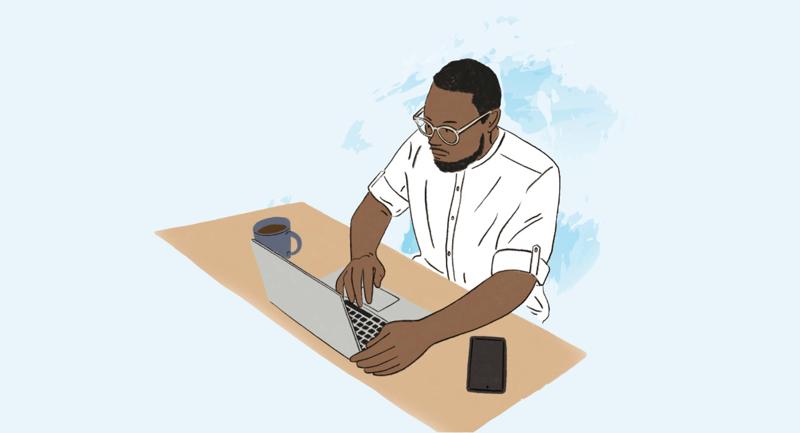If I had to think back to why the first six years of my career as a special education teacher and reading interventionist were successful, it would all come down to an MVP (Most Valuable Paraprofessional): Shermecia Robinson.
Shermecia and I tracked, redirected, and affirmed behaviors among our students with emotional disturbances. She led small groups, engaged in questioning, implemented strategies for our neurodiverse students, and helped troubleshoot technological issues. Together, we planned, practiced, and reflected. By the end of our working partnership, our students were thriving, our classroom culture was vibrant, and we functioned in perfect unison.
An Eye-Opening Reality
When I switched schools and took on broader roles in school and district leadership, I got a much clearer understanding of the reality most common to paraprofessionals in special education. They are most often assigned to support students with the greatest needs. They may be placed with novice teachers who are also trying to find their footing with content and classroom management. They can also spend a career with teachers who may be more experienced but lack the understanding of how to meaningfully differentiate instruction or support challenging behaviors.
Paraprofessionals can also be spread thin—covering classes or taking on duties while teachers are planning, out sick, in meetings, or in professional development. Out of necessity, many are also leading or assisting in "specials" classes or interventions.
They do all of this even when their pay is largely fixed, capped, and abysmally low. In the South where I live, paraprofessional pay ranges between $11 and $13 an hour. Thousands have been laid off as a result of pandemic-related budget cuts.
Few Opportunities for Learning
Paraprofessionals are deeply committed to their communities and the schools in which they work. Most in my area have little formal teacher or special education training but are eager to learn and want what every teacher I know wants: to help students.
What they are rarely armed with, though, is meaningful opportunities to build their skills. Although the expectations for paraprofessionals can be high and assumptions are often made about what they should know and be able to do, it can be difficult to find organized and consistent supports and learning opportunities for them. Even though they hold critical roles in carrying out aspects of an IEP (aiding in implementing behavior plans, assisting with physical or mobility needs or personal care), in my experience, few have ever seen a complete IEP, sat in on an IEP meeting, or been trained on certain accommodations or manifestations of disabilities.
How to Invest in Paraprofessionals
Last year, I found myself in a new role where I was able to spend half the day teaching while serving as an Innovative Programs Coordinator for my district. The first program I designed was a training series for the special education paraprofessionals. After the training, many paraprofessionals were able to provide services even despite the dramatic shift to virtual learning.
If you're thinking of ways to support paraprofessionals at the classroom, school, or district level, consider doing the following:
Ask them what they'd like to learn.
We often talk about giving our students' choice and voice, but agency over one's learning is something all learners value, particularly adults. Create a survey that allows paraprofessionals to indicate areas where they'd like more support. In West Baton Rouge, our team was interested in learning more about how specific disabilities affect learning, the roles and responsibilities of their jobs, the IEP process, and leveraging learning technologies for students with disabilities.
Consider an EdCamp approach to learning.
Because paraprofessionals' work can span preK–12, cover many subject areas and learning environments, and support a wide array of abilities, a standard workshop might not be the best model. Instead, we incorporated EdCamps during the workday as professional development. We arrived at the first camp with a blank slate and started off mingling and adding Post-It Notes of the topics everyone wanted to learn. Then, we rotated groups around IEP basics, special education policy, continuing education, instructional practices, special education evaluations, and behavior. We also involved field experts to lead short sessions about everything from continuing education to specific strategies for students who are nonverbal.
Protect workshop time.
Finding time to meet and making a convincing case for spending time away from the classroom can be difficult. If you're a paraeducator or teacher, advocate to your administrative team or instructional coaches and offer to assist if needed. If you're a coach or administrator, think about how to structure consistent, protected time for learning, and include detailed agendas for what sessions will cover. We opted for breaking workshops into two large cohorts (a.m./p.m.) every other month for three hours and scheduled strategically with principals. That way, schools could plan which sessions to send paraprofessionals to so that they weren't all gone at once. When COVID-19 shut down our physical schools, we adapted workshops for Zoom, offering multiple sessions and not mandating cameras to accommodate those caring for children or family members.
Plan meaningful learning experiences.
If I was going to pull folks from their duties, I knew I had to make it count. One of our first special guests was Mandy Manning, the 2018 National Teacher of the Year, who began her education career as a paraprofessional and has experience with refugee students and English learners. We tap into our local Teachers of the Year and superintendent and highlight stories of our own paraprofessionals and the work we're doing. I was also sensitive to the range of paraprofessionals' knowledge, abilities, experiences, and skills. Some became paraprofessionals right out of high school, while others were grandparents looking to serve the community. Some had never owned or touched a computer, where others were wizards at Google Suite.
Pull from available resources.
Plenty of free resources are available to support paraprofessionals' learning. I used Understood.org's simulations, videos, and printable materials as a jumping off point for conversations. The "Through Your Child's Eyes" simulations for reading, writing, attention, math, and organization issues helps us truly understand the frustration that our learners endure when what we're doing isn't responsive to their needs. Paraprofessionals could explore the library of videos explaining learning disabilities on their own and found the communication and empowerment resources for educators helpful. Sometimes teaching others how to support their own learning is the best thing we can teach.
My friend Shermecia is now earning her degree with the hope of becoming a special education teacher in our community. Her success shouldn't be unique. Teachers and school leaders should prioritize learning and skill development for paraeducators as major parts of our classroom teams. They're connected to families and communities in ways many other school personnel are not. They invest so much of themselves into the lives and success of our students. Investing in them can only yield powerful outcomes. Let's see what it looks like when we commit to everyone in a classroom.




